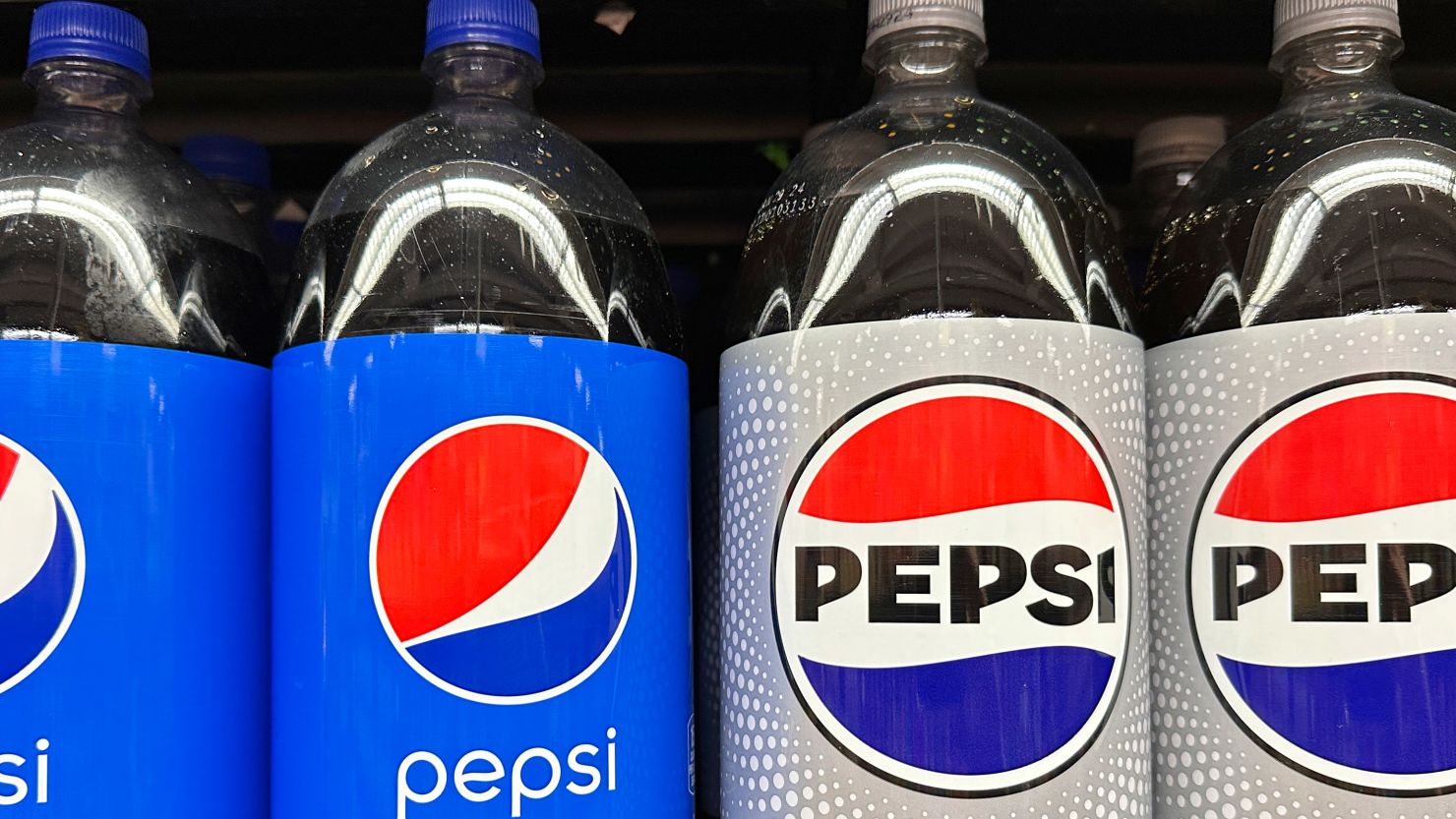New York’s water and parks are full of plastic waste. But litterbugs aren’t the problem, according to New York Attorney General Letitia James. It’s the company that puts so many plastic bottles and packages into world, PepsiCo — the maker of Pepsi, Mountain Dew, Lay’s chips and dozens of other brands.
Too often, conversations around environmental protection focus on the individual: What you, specifically, can do to reduce waste, improve recycling or otherwise save the environment. But James and others are making the case that the companies that rely on increasing sales of single-use plastics are the ones responsible, not individual shoppers.
PepsiCo has downplayed the risks of its plastic packaging and created a public nuisance in the state, she alleged in a lawsuit filed against the company on Wednesday. And it needs to be held responsible, she said.
The Buffalo River is teeming with plastic, according to the report, and contaminating New York’s drinking water.
“All New Yorkers have a basic right to clean water, yet PepsiCo’s irresponsible packaging and marketing endanger Buffalo’s water supply, environment, and public health,” said James in a statement Wednesday. “No one should have to worry about plastics in their drinking water, plastic garbage littering their scenic riverfront, or plastic pollution harming wildlife.”
In recent years, companies like PepsiCo and others have made the case that they can reduce their environmental impact by using recycled or recyclable packaging, which requires customers to recycle products.
“PepsiCo is serious about plastic reduction and effective recycling, and has been transparent in our journey to reduce use of plastic and accelerate new packaging innovation,” a PepsiCo spokesperson said in a statement responding to the suit.
“This is a complex issue and requires involvement from a variety of stakeholders, including businesses, municipalities, waste-reduction providers, community leaders and consumers,” the spokesperson added, saying “we have worked effectively with a variety of communities across the country and remain committed to doing so.
But Pepsi trying to put its own responsibilities on its customers is the problem, James and environmental advocates say. And it’s up to companies like Pepsi, not consumers, to make a change.
Pepsi’s plastic pollution
Last year, the Attorney General’s office conducted a survey of waste found in the Buffalo River and its watershed. Most of that waste was plastic, and about 17% of that plastic bore logos of products made by PepsiCo, the lawsuit alleges, while waste from other brands accounted for far less of the total.
That waste, like all plastic that ends up in the environment, is breaking down into ever-smaller particles which are polluting New York’s water, some of which ends up in people’s bodies.
“The City of Buffalo and other New York communities source their drinking water from Lake Erie, and microplastics have been detected in Lake Erie,” according to the complaint. “Moreover, other communities source their drinking water from the Niagara River, downstream of the Buffalo River.”
Research into the effects of ingesting plastic waste is still in its infancy, but scientists are already concerned about possible health problems.
Additionally, PepsiCo has failed to properly warn the public about where its plastic packaging ends up, according to the lawsuit, making it sound like recycling will effectively deal with plastic waste.
The company has “misled the public and consumers regarding the efficacy of plastic recycling and its own efforts to combat plastic pollution,” the complaint states, noting that there are a number of challenges to recycling.
The problem with recycling
For one thing, the complaint states, some of PepsiCo’s snacks packaging isn’t recyclable at all. And items that are recyclable, like bottles, can only be recycled a handful of times. On top of that, PepsiCo has failed to meet its own recycling goals, the lawsuit said.
In general, experts warn against leaning on recycling to reduce waste.
“We cannot recycle our way out of the plastic problem,” Kirstie Pecci, executive director of Just Zero, a nonprofit focused on reducing waste, told CNN. “We have to set it off at the tap and stop using so much plastic.”
Some materials, like glass or paper, can be recycled over and over, she noted. But plastics don’t hold up as well. “The recyclability of plastic has always been severely limited, and it will not improve,” she said.
“You cannot go to your curbside bin and sort your way to virtue,” she said. “There’s just no way to do it.”
What happens next
James wants the court to find that PepsiCo has created a public nuisance, and for PepsiCo to take steps to reduce its waste, potentially by using other types of packaging.
She also wants PepsiCo to add warning labels to its products, and is seeking damages for harm done to the Buffalo River and Buffalo residents at an amount that would be determined in a trial, among other things.
Environmental advocates are hopeful that the complaint could help change the way lawmakers approach plastic pollution.
Judith Enck, president of Beyond Plastics, a Vermont-based organization that is trying to end plastic pollution, is hopeful that James’ lawsuit could offer a template for others: Document pollution in their states, find out who produces most of it, and charge them to make a change.
Generally, lawsuits surrounding plastic pollution are brought by non-profits, not government officials, she said. “Having the power of a state looking out for the state’s interest is really significant,” she said.
“New York State law allows you to hold polluters accountable, whether it’s toxic waste or construction and demolition debris,” she said. “There’s no reason why plastic pollution is any different.”








